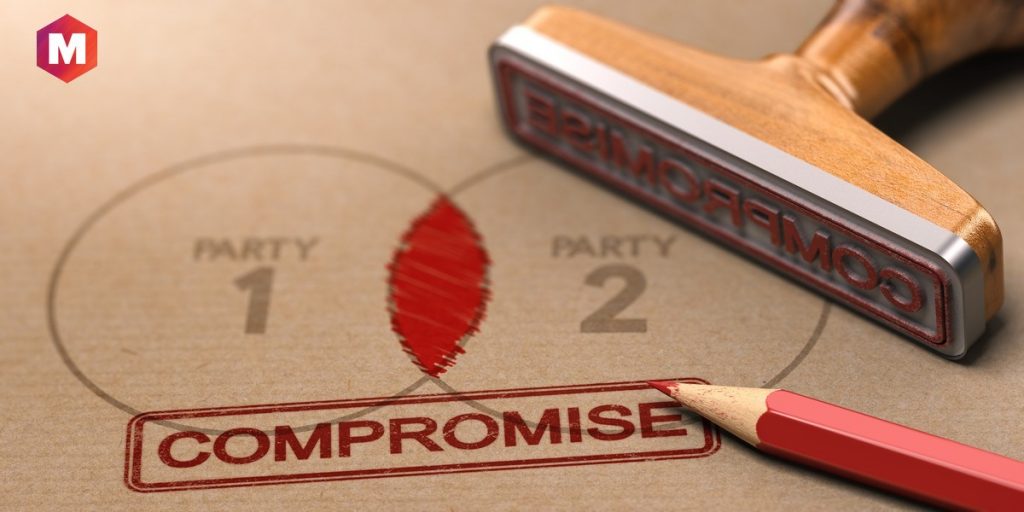Dispute resolution is the process of resolving a disagreement or conflict between two parties. Dispute resolution can happen through negotiation, mediation, or arbitration.
Businesses often use dispute resolution to resolve disagreements or conflicts between employees, customers, or other businesses. Dispute resolution is often handled by a neutral third party, such as a mediator or arbitrator.
Table of Contents
What is Dispute Resolution?
Dispute resolution is the process of resolving disputes between two parties. Dispute resolution can take many forms, such as negotiation, mediation, or arbitration. Alternative dispute resolution (ADR processes) is a term used to describe Dispute resolution methods that do not involve going to court.
Importance of Dispute Resolution
The reasons behind the important of dispute resolution include
1. Avoiding litigation
Dispute resolution methods are often faster and cheaper than going to court.
2. Preserving relationships
Dispute resolution can help parties preserve relationships that would be harmed by litigation.
3. Resolving complex issues
Dispute resolution can help parties resolve complex issues that might be difficult to resolve in court.
4. Optimizing productivity
Dispute resolution can help businesses optimize productivity by resolving disagreements quickly and efficiently.
What are the types of Dispute Resolution? – Methods of Dispute Resolution
The three most common types of dispute resolution are negotiation, mediation, and arbitration.
1. Negotiation
Negotiation is a process in which parties attempt to reach an agreement on a disputed issue. Negotiation can be informal, such as two people arguing over a purchase price, or formal, such as two businesses negotiating a contract.
2. Mediation sessions
Mediation is a process in which a neutral third party helps parties reach an agreement on a disputed issue. Mediation is often used to resolve business disputes.
3. Arbitration process
Arbitration is a process in which a neutral third party hears both sides of a dispute and makes a binding decision. Arbitration is often used to resolve business disputes.
4. Lawsuits
A lawsuit is a process in which one party sues another party to resolve a dispute. Lawsuits are often used to resolve business disputes.
5. Government Regulation
Government regulation is a process in which the government enacts laws or regulations to resolve a dispute. Government regulation is often used to resolve business disputes.
6. Collaborative law
Collaborative law is a process in which parties work together to resolve a dispute. Collaborative law is often used to resolve business disputes.
7. Avoidance
Avoidance is a process in which parties avoid conflict or disputes altogether. Avoidance is often used to resolve business disputes.
8. Conciliation
Conciliation is a process in which a neutral third party helps parties reach an agreement on a disputed issue. Conciliation is often used to resolve business disputes.
9. Settlement
Settlement is a process in which parties reach an agreement to resolve a dispute. Settlement is often used to resolve business disputes.
10. Facilitation
Facilitation is a process in which a neutral third party helps parties reach an agreement on a disputed issue. Facilitation is often used to resolve business disputes.
How does Dispute Resolution work?
Dispute resolution typically works in the following steps
- The parties involved in the dispute meet with a neutral third party, such as a mediator or arbitrator.
- The third party listens to both sides of the dispute and helps the parties reach an agreement.
- Once an agreement is reached, the dispute is resolved and the parties are bound by the agreement.
How to Choose a Dispute Resolution Method?
When choosing a dispute resolution method, it is important to consider the following factors:
1. The type of dispute
Disputes can be civil or criminal. Civil disputes are typically resolved through negotiation, mediation, or arbitration. Criminal disputes are typically resolved through trial.
2. The parties involved in the dispute
Disputes can involve individuals, businesses, or government agencies. Each type of party has different needs and interests.
3. The jurisdiction
Disputes can be resolved in court, through arbitration, or through mediation. It is important to choose a dispute resolution method that is appropriate for the jurisdiction.
4. The time frame
Disputes can be resolved quickly or slowly. It is important to choose a dispute resolution method that is appropriate for the time frame.
5. The cost
Disputes can be resolved cheaply or expensively. It is important to choose a dispute resolution method that is appropriate for the cost.
6. The outcome
Disputes can be resolved in favor of one party or the other. It is important to choose a dispute resolution method that is appropriate for the desired outcome.
Dispute vs Conflict: What’s the Difference?
Dispute and conflict are often used interchangeably, but there is a difference between the two. Disputes are disagreements between two parties that can be resolved through negotiation, mediation, or arbitration. Conflicts are disputes that cannot be resolved and often lead to violence. Conflict resolution is the process of resolving a conflict.
What is Dispute Settlement?
Dispute settlement is the process of resolving a dispute. Dispute settlement can be done through negotiation, mediation, arbitration, or trial. Dispute settlement is often used to resolve business disputes.
What is a Binding Decision?
A binding decision is a decision that is binding on the parties involved in the dispute. Binding decisions are often made by arbitrators or mediators. Binding decisions are often used to resolve business disputes.
Conclusion!
Dispute Resolution is a process in which parties work together to resolve a dispute. Dispute Resolution can be used to resolve business disputes.
When choosing a Dispute Resolution method, it is important to consider the type of dispute, the parties involved, the jurisdiction, the time frame, the cost, and the desired outcome. Dispute Settlement is the process of resolving a dispute.
How important do you consider Dispute Resolution in business? Share your thoughts in the comments below!
Liked this post? Check out the complete series on Management

